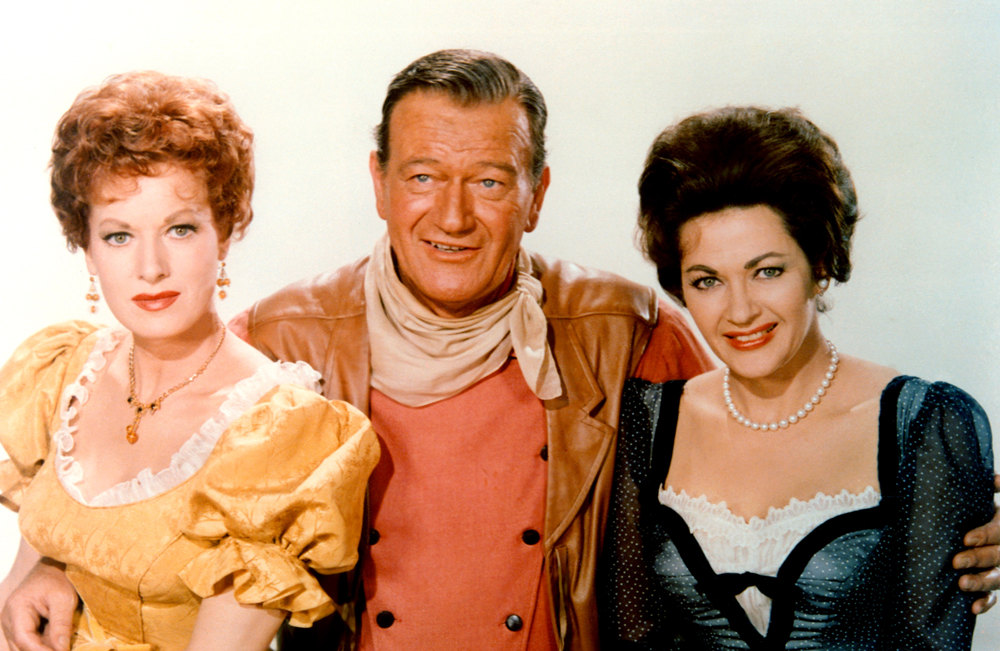Watching MGM’s 1951 Biblical epic “Quo Vadis” is not so much like watching a motion picture with a plot and characters as it is looking at a series of elaborate tableaus, each depicting some massive scene in a glorious but detached spectacle. The movie was one of the biggest of its day, enormous in scope, in cast, in costumes, in settings, and in cost. Given its popularity at the time, it surprises me that Warner Bros. waited so long finally to bring it to DVD.
“Quo Vadis” was one of the films that led to the reemergence of so-called sword-and-sandals flicks from the late 1940s through the early 1960s. Leading the charge were Cecil B. DeMille’s “Samson and Delilah,” followed by this one, “The Robe,” “Demetrius and the Gladiators,” “The Ten Commandments,” “Ben-Hur,” “Spartacus,” “El Cid,” and “The Fall of the Roman Empire,” to name but a few. If you’re keeping score, “The Ten Commandments” probably headed the list in sheer spectacle, with “Ben-Hur” and “Spartacus” the most intelligent. But there’s no denying “Quo Vadis” as a contender.
Mervyn LeRoy (“Anthony Adverse,” “Random Harvest,” “Thirty Seconds Over Tokyo,” “Mister Roberts,” “Gypsy”) directed “Quo Vadis,” with uncredited help from Anthony Mann (“The Far Country,” “God’s Little Acre,” “Cimarron,” “El Cid”), the filmmakers basing their story on the best-selling novel by Henryk Sienkiewicz. The tale gets its name from the Latin term meaning “Where are you going?,” taken from the passage in John 13:36 where Peter says to Jesus, “Lord, whither goest thou? Jesus answered him, Whither I go, thou canst not follow me now; but thou shalt follow me afterwards.” Thus, the story’s title sets the tone and premise of what will follow.
In fact, for a movie nearly three hours long, “Quo Vadis” has surprisingly little plot or characterization going for it. It’s mostly an unabashed declaration of Christianity and the power of love. Certainly nothing wrong with that, except the film can become tiresome in long stretches.
Robert Taylor stars as General Marcus Vinicius, commander of the Roman 14th Legion in the year 64 A.D. He’s just returning from the victorious suppression of a British revolt, and he’s the toast of Rome. But it’s not long after his return that he meets and falls in love with a beautiful young woman, Lygia (Deborah Kerr), the adopted daughter of a retired Roman general. The trouble for them is that he is a Roman, devoted to the many Roman gods carried over from the Greeks, and she is a secret member of a fledgling new religous sect, the Christians. He is not too keen on the idea of giving up his soldiering ways for this newfangled love-your-neighbor business. After all, the Romans built their empire on conquering every country they could find and enslaving many of their subjects. The Christians, though, believe that all people should be free. Not an easy concept to accept, but as everyone knows, love conquers all. It doesn’t help, either, that Vinicious’s idea of courtship is to buy the girl, literally, and force himself upon her, a plan that naturally backfires.
Well, you can see that the romance between the Roman commander and the Christian follower is really a representation of the conflict between the pagan empire and the new religion. The Romans figure they’ll be around forever, the might of Rome being so extensive and all, and the upstart Christians will soon die out like so many other cults. Hint: Bet on the Christians in the long run.
Everything about the film is big. It begins with a three-minute overture of composer Miklos Rozsa’s music and ends with exit music. It’s narrated by an uncredited Walter Pidgeon. The filmmakers shot much of the story on location in Italy, several of the scenes looking as though the filmmakers shot them on the actual Appian Way. The sets and matte paintings are glorious, and the cast is enormous. Recreating a coliseum full of Roman citizens was a neat trick; today we’d use CGI, but for 1951 it must have taken some ingenuity.
You can also probably tell from what I’ve told you that the film is solemn to a fault, including Taylor and Kerr, whose sincerity in their roles makes them seem more wooden than they might normally be. Also, like most big epics, this one rather lumbers along, moving slowly in order to establish its credentials as a “serious” movie.
While stars Taylor and Kerr do their best with what the script hands them, we never care much about them; they’re basically shallow people, and as an audience we never relate much to them. They are without much charisma, limiting our personal involvement in their plight. What the story lacks is a strong central character like Moses or Ben-Hur or Spartacus for whom we can root. With Vinicious, we find him almost a cipher.
Thank heaven, then, for Peter Ustinov as the Emperor Nero. He saves the day. Indeed, the movie is as much about him as it is about Vinicious or Lygia or the Christians. Ustinov is so over-the-top in the role, he easily steals the show. His Nero is pompous, vain, preening, peevish, petulant, childish, foolish, murderous (he orders the executions of his own mother and his wife, to say nothing of throwing thousands of Christians to the lions), and not a little nuts (according to the film, and based on popular rumor, he burned down the entire city of Rome in order to rebuild it to his own specifications). What’s more, he insists that his subjects worship him as a god, the master of the world. It’s no wonder Nero turned out the way he did; his uncle was the Emperor Caligula. Ustinov takes this colorful character of legend and runs with it. Any time the actor is on screen, the story lights up.
Likewise, we get a good performance from Leo Genn as Gaius Petronius, Nero’s wise, suave counselor (and Vinicius’s uncle). If it had been a few years later, James Mason might have played the role, since Mason and Genn have similar looks and speak in a similar manner. Interestingly, Genn’s career slowly faded into obscurity just as Mason’s began to ascend. Apart from that trivia, Genn is fine, inserting a note of reason, sanity, and security into the proceedings.
Despite my reservations, how could I not like a movie that shows us the spectacle of Rome burning, Christians facing ravenous lions, and heavyweight prizefighter Buddy Baer wrestling a bull? I just wish it wasn’t so long.
Video:
The movie’s original 1.37:1 aspect ratio shows up well in 1.33:1 standard definition, the newly restored picture looking reasonably crisp and clear, and the Technicolor looking glorious. Delineation and detailing are as good as anything in standard def, and about the only minor concern I had with the new digital transfer is that hues sometimes showed some very slight fluctuation.
Audio:
The keep case says that WB engineers restored the audio as well as the picture, but I’m afraid it still isn’t as warm or natural as a modern sound recording. Instead, the Dolby Digital 1.0 monaural is a bit harsh and raspy at times, with a touch of background noise. Dialogue is OK, but Miklos Rozsa’s musical score suffers somewhat, appearing a little lean and thin.
Extras:
Warners have split the film over two discs for maximum picture quality, leaving little room for extras. On both discs we find an audio commentary by critic and film historian F.X. Feeney; English and French spoken languages; French, Spanish, and Japanese subtitles; and English captions for the hearing impaired. In addition, disc one contains a theatrical trailer and a teaser trailer, and disc two contains a new, 2008 documentary, “In the Beginning: Quo Vadis and the Genesis of the Biblical Epic,” forty-four minutes on the history of Biblical movies from silent days to the present, with comments from film historians, critics, and filmmakers. The discs split up the scene selections, too, with chapters 1-23 on disc one and 24-46 on disc two.
Parting Thoughts:
Sitting through “Quo Vadis” is a little like being in a Sunday School class, with the filmmakers presenting the story of early Christianity as a solemn procession of martyrdom and salvation. It’s heavy-handed, to be sure, but it’s fun to watch, thanks to its pageantry and color.


